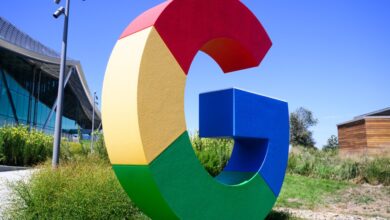‘Popcorn brain’ explained — how social media can ruin attention spans

This may seem corny — but if you are feeling overwhelmed by the non-stop pace of digital media and find yourself struggling to concentrate on a single task or thought, you may have “popcorn brain.”
“Popcorn brain refers to the tendency for our attention and focus to jump quickly from one thing to another, like popping corn kernels,” clinical psychologist Dr. Daniel Glazer told Metro UK last week.
“Popcorn brain” isn’t new — the term was coined in 2011 by University of Washington researcher David Levy — but mental health experts are sharing new ways to combat the phenomenon as our lives become more digital.
One study found that 62.3% of the global population is on social media, with the average daily usage last month clocking in at 2 hours and 23 minutes.
Psychologist Dannielle Haig told Glamour UK last week that excessively scrolling and browsing through new posts, alerts, engagements, and advertisements triggers a small dopamine release that rewards the brain and fuels the cycle.
“Over time, this constant demand for attention and the rapid switching between tasks can lead to a feeling of mental restlessness or the brain ‘bouncing around’ as it struggles to maintain focus on any one task for an extended period,” Haig explained.
Research by the University of California at Irvine determined that the average attention span on any screen before switching to something else decreased from 2.5 minutes in 2004 to 75 seconds in 2012 to 47 seconds nowadays.
“Some key aspects of popular apps seem uniquely suited to scatter focus — like variable reward schedules, micro-dosing of dopamine, and purposefully addictive designs optimized to maximize engagement over well-being,” Glazer told Metro.
The constant digital stimulation appears to be affecting brain performance.
Research suggests that neural pathways in the brain “are being rerouted or adapted to accommodate the demands of multitasking and rapid information processing,” Haig says, which may come at the expense of being able to “engage deeply and thoughtfully with content, potentially impacting learning, memory, and emotional regulation over time.”
She warns that “popcorn brain” can negatively affect social interactions, patience, emotional well-being, and productivity while increasing anxiety and the potential for burnout.
Here are some suggestions Haig and Glazer have for easing “popcorn brain.”
- Limit tech usage to certain times and undergo digital detoxes to let the brain rest and recharge.
- Participate in screen-free activities, like meditating, enjoying nature, exercising, reading, and creating art.
- Make sure to pause to focus on a single task to train your brain not to multitask all the time.
- Periodically delete apps to try to regain control over social media usage.




